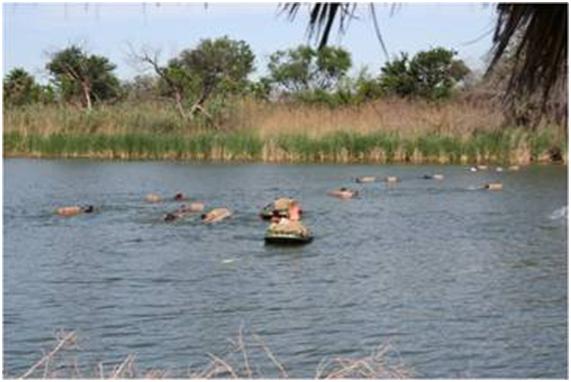Press Release
Drug Cartel Violence Along Open Southern Border Endangers Drinking Water Supplies“The Rio Grande River has become notorious for crossing of persons and drugs”
WASHINGTON, D.C.,
June 17, 2010
|
Jill Strait or Spencer Pederson
(202-225-2761)
Today the House Natural Resources Subcommittee on Water and Power held a hearing on H.R. 4719, a bill to establish a Southwest Border Region Water Task Force to assess the water supply needs of the region. As part of the hearing, the Subcommittee heard that drug cartel activity along the U.S./Mexican border presents major threats to water infrastructure, including the federally owned Falcon Dam on the Rio Grande River.
“The open nature of the border has serious consequences not only on our water supplies but this nation as a whole. This Congress needs to step up and secure our borders, stop the violence and protect our infrastructure,” said Subcommittee on Water and Power Ranking Member Tom McClintock (CA-04). Escalating violence along the U.S.-Mexico border, particularly on federally owned lands, is a result of the Border Patrol’s restricted access due to bureaucratic regulations from Washington D.C. As a result, these federal lands and corridors have been targeted by drug smugglers, human traffickers and murders that threaten human safety and cause environmental degradations. Border Patrol’s inability to effectively monitor federal lands along the border also leaves the U.S. vulnerable to potential terrorist attacks. For example, on June 2, 2010, The Houston Chronicle detailed a Mexican drug cartel’s plot to blow up the federally owned Falcon Dam on the Texas-Mexico border:
Today, the Subcommittee heard testimony from Ms. Joan Neuhaus Schaan, Homeland Security and Terrorism Fellow at the James A. Baker III Institute for Public Policy at Rice University. Ms. Schaan did not mince words when highlighting the gravity of situation on the border:
House Republicans, led by Rep. Bishop, have introduced legislation (H.R. 5016) that would give USBP operational control of the border and ensure that the U.S. Department of Interior does not impede or restrict Border Patrol from effectively doing their to job to secure the border. For more information visit /border # # # |
Newsletter Sign Up
Sign up to receive news, updates and insights directly to your inbox.

